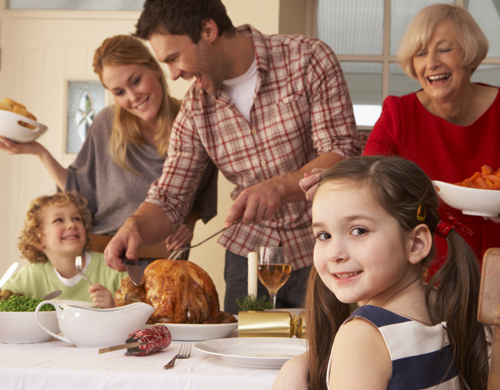WASHINGTON — That holiday food parade is a tradition, an expectation and a fleeting pleasure.
And while you can savor all that food for only a few minutes, you get to savor its legacy (i.e., added pounds) for weeks — up until your January return to the gym.
It’s a cycle of mindless feast, self-induced famine and desperate exercise.
Of course, you can break free of the cycle this holiday season — even amid such temptations as chocolate pumpkin pie — but it doesn’t have to be a sad endeavor.
It’s all about changing your mindset.
Two area yoga trainers — Erin Sonn and Lindsey Goldwasser — explain that the change involves treating the very act of eating as a deliberate act.
They call it “mindful eating.”
But first, let’s back up a bit.
Let’s get deliberate
To understand mindful eating, you have to understand what mindfulness itself is.
“It’s the deliberate act of paying attention on purpose without attachment or judgment,” Sonn said, “and just sort of sitting with the present moment and understanding all the information you’re getting through your senses and just being aware of it without judging it, without ruminating on it, without letting it direct you away from that moment with thoughts of the past and future.”
It applies to eating, Goldwasser said, in that you’re not doing what is standard operating procedure during the holidays: 1) filling the plate to the brim and 2) devouring it while 3) planning what you’ll have for seconds.
“It’s appreciating the texture that’s on your plate, the variety of options, the colors that are on your plate,” she said, “… just really paying attention to every single bite you eat.”
So slow down and be mindful of the chewing. Be mindful of how nutrition appears, as well. More fruits and vegetables mean a more visually striking plate. As Sonn said, mindful eating is “looking at a plate of food and interpreting that plate of food through all of our senses.”
Why should one approach eating like this, a time when aggressive consumption is celebrated?
So many foods, Goldwasser said, determine not only how you sleep but also your decision making the next day, when you’re at that potentially stressful family gathering.
“It is our biggest benefit, and it’s also our biggest sabotager,” she said.
Helpful strategies
Both offered some strategies for shifting into the practice during the holiday food blitz.
Be prepared. The holidays tend to disrupt routines. So plan out those meals as much as you can, even if you’re going to a party. Limit yourself to one drink and sensible portions.
Pack nutritious snacks. If you get hungry around rich food, you’ll be less-inclined to reach for it.
Drink water. It helps you feel full, aids digestion and keeps you hydrated if you’re having alcohol.
Just say no. “One of the biggest self-care tools is practicing saying no,” Goldwasser said. If you’re not comfortable turning down something offered, accept it, take a bite and discreetly throw it away.
Rethink the term “self care.” Treating yourself doesn’t have to mean eating/drinking what you want, when you want. It can mean getting a massage, sitting in a sauna, reading or just watching your favorite TV show (while not snacking, ahem).
Sonn and Goldwasser will host a workshop on mindful eating around the holidays 3–5 p.m. Dec. 10 at Ease Yoga Cafe in Alexandria. Tickets are available here. Goldwasser is also offering a four-week “Handle the Holiday Hump” activity, aimed at maintaining positive habits into the new year. Read more about it on her WholesOMe Health website.








